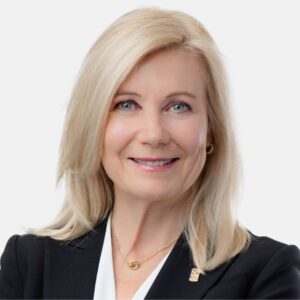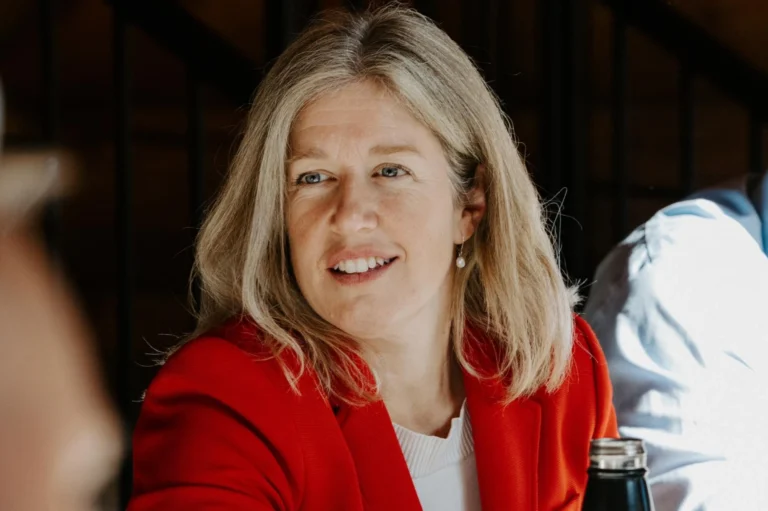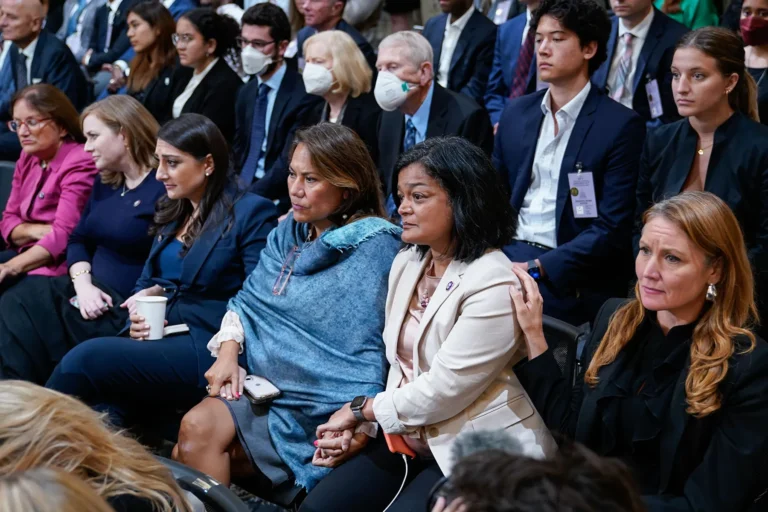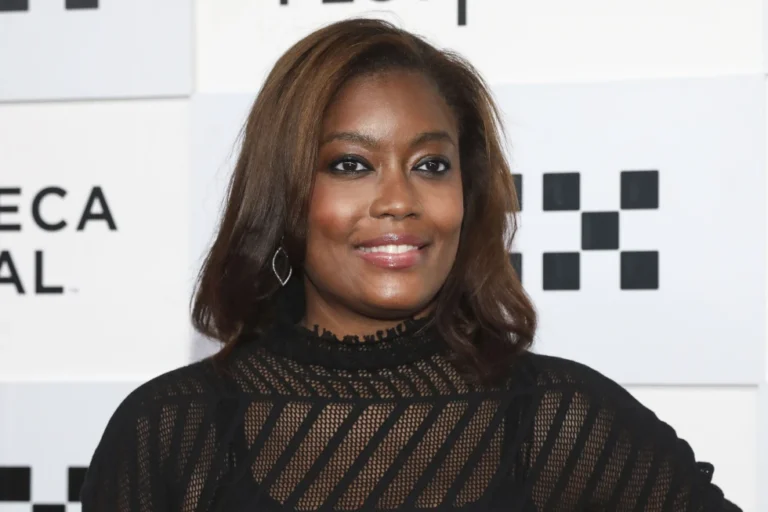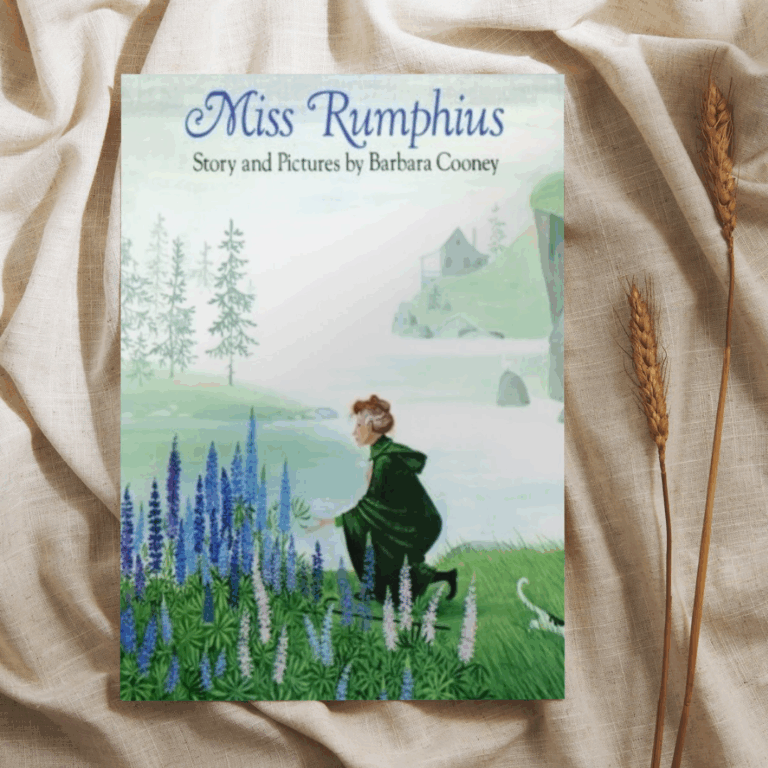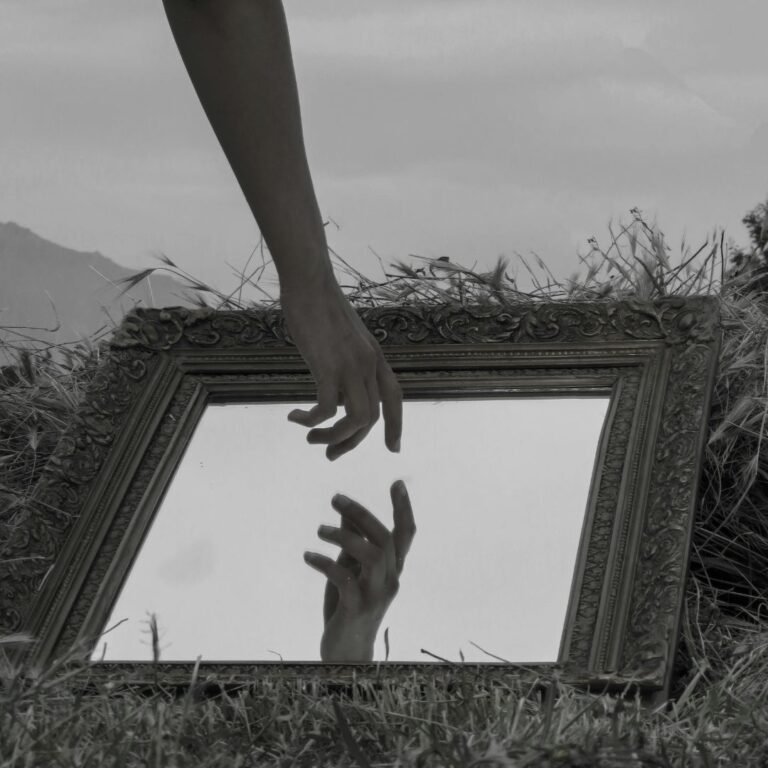Julie Nesrallah – Opera singer and the host of CBC Radio’s national classical music program Tempo
Julie Nesrallah is well known to music lovers as a celebrated opera singer and the host of CBC Radio’s national classical music program, Tempo. Julie has performed worldwide for guests ranging from world leaders to royalty like the Duke and Duchess of Cambridge and Queen Noor of Jordan. She has won several awards, including a Queen’s Diamond Jubilee Medal for contributing to Canada’s performing arts. She brings her trademark joy, energy, and optimism to this wide-ranging conversation — sometimes serious, sometimes fun — with Jennifer and Catherine.
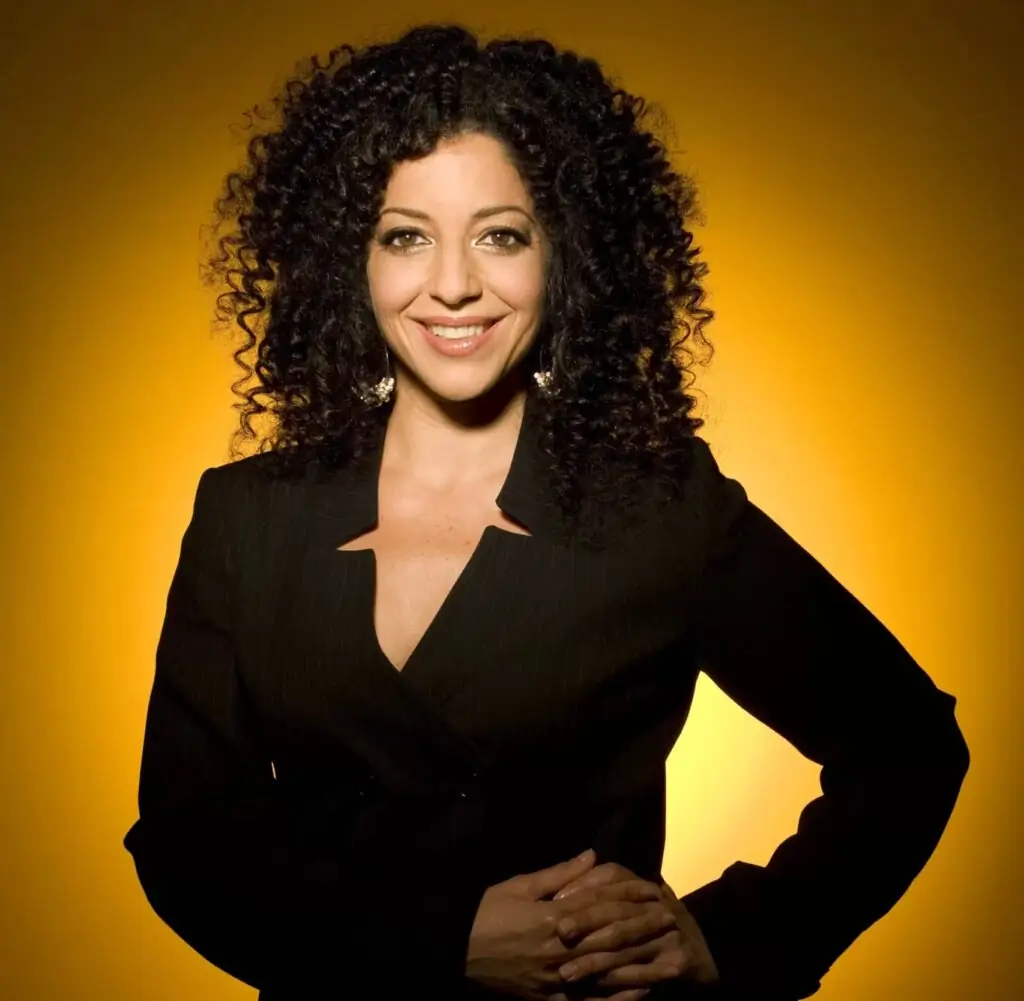
A passion for music
Jennifer Stewart: You’ve been singing your whole life. When did you know it could become a career?
Julie Nesrallah: I didn’t know it would become a career or how it would become a career. I remember watching TV with my mom as a little four-year-old, I think it was an Oscars segment where people came out and started dancing and singing, and I just knew I was one of those. The feeling was so strong and resonant in my four-year-old soul that I never knew anything existed. And that’s the kind of passion that you need. It’s like music chose me; it forces you to forge a music career, a life in music, and I didn’t know what it would look like.
But then, things have a way of unfolding. I did a couple of music degrees and found myself, right out of university, debuting with Pacific Opera Victoria. I somehow got an agent in New York City. It just unravelled all by itself. It was this hardcore faith and perseverance that led me to have a music career. You just have to have this unwavering faith that things are going to happen if you just keep working hard.
Today, all I’ve ever known is a life in music. And it’s funny — I always tell people that the job at CBC is the first real job I’ve ever had. The job at CBC was, in many ways, such a perfect complement. And that’s how it all happened. I don’t want to say on a wing and a prayer, but sort of!
Catherine Clark: Going from watching people on stage to actually being there, was it as glamorous and amazing, or was it not quite as awesome?
Julie Nesrallah: It felt like the most natural thing in the world. I don’t get nervous. Standing in front of thousands of people is exactly where I need to be. I was just born with the DNA for this. In many ways, it is so not glamorous. It’s so much hard work, and so much on the road and being in hotels and in airports, but on stage, it feels fantastic. It’s a nourishment that I need to have. I need that rapport with a large gang of people. I feel the embrace of the audience and I feel like I need to embrace them back, and this is how I do it. It’s that feeling of, I have something to share and I really hope you can come along with me on this journey because it’s quite beautiful and profound and moving. It is the most amazing feeling in the world. It’s extremely empowering and extremely humbling. I’m so lucky — not everyone gets to make their passion in life come true.
Jennifer Stewart: What do you think you get from the audience that inspires you while you’re on stage?
Julie Nesrallah: You get energy. There are so many surveys and experiments where they monitor people’s heart rates as they’re watching a live show. They say that the heart rates start to synchronize and people pick up on each other’s moods. It does a tremendous amount for mental health. What I get is a tremendous amount of warmth, acceptance, and validation for the art I’m presenting. Connection is the number one valuable resource I get from being onstage. Radio is all about that too, it’s just a different element of connection.
And I love, love, love talking to people after a performance. I want to see people; I want to see their faces, I want to talk to them. Is there something they liked or something they didn’t like? I’m just this open human who’s receptive to other people.
Learning to say “no”
Catherine Clark: What has been the biggest setback in your career or personal life?
Julie Nesrallah: I feel like having a career in music is already crazy enough. It’s such a brutal business. Saying no to a couple of things in some ways were setbacks professionally because I never got asked back again. But I also don’t regret it because I feel like, from an artistic point of view, I was doing exactly what I needed at that time.
Jennifer Stewart: A lot of women struggle with saying no to any opportunities because they’re afraid of being perceived as difficult, or they want to take every opportunity but then stretch themselves too thin. There’s a lot of power in “no.” In your opinion, how do we teach more women to have those boundaries.
Julie Nesrallah: I think knowledge is power. All of these questions you’re asking yourself are multi-layered. You’re factoring in well-being, you’re factoring in geography, you’re factoring in money, you’re factoring in your family, and just gut feelings. What would help is to sit down and make a list, put it down on paper, make it concrete, and just figure out what aspects of the “no” you will be willing to live with or not. Making a well-rounded, educated, quiet personal choice for yourself is the way to circumvent feelings of regret or, what happened to me, like essentially getting blacklisted from places by saying no. Weigh it out, write it down, look at it all, and find out exactly what you’re prepared to live with if you do say no. And it’s a great way to get to know yourself — how do you know who you are if you don’t say no?
Catherine Clark: It’s important for women to know that every person’s answer to that question is going to be different. What you’re saying no to because it’s right for you may not be the same for another woman, and that’s okay. It’s okay to have that difference.
Julie Nesrallah: It has to be okay. We are all just different jelly beans in the jar. Everyone has to do what is right within the context of their life. You have this life, and you have these people, and you have certain boundaries and financial restrictions. There’s no way around it — you have to do what is essential to you in your life and what fits that life.
The importance of kindness and love
Catherine Clark: You bring so much energy, dynamism, and joy to your interactions with people. Is that part of who and what you are? Or is that something you deliberately cultivated and put out there?
Julie Nesrallah: I was telling a girlfriend of mine the other day that my default is love. It is just like that: I was born with a very pleasant attitude towards everything that comes my way, an open attitude. I’m a joyful person. I’m always the first person to apologize in an argument. Some people think, “Well, why are you saying sorry?” I think it’s a sign of strength; I just don’t think conflict is necessary. If someone is upset with me, I have no problem saying, “I’m sorry, I can change that.” These things don’t bother me. Again, I think it’s this fundamental interest in other humans and not being afraid to be fully who I am.
Jennifer Stewart: Julie, what do you want to be remembered for?
Julie Nesrallah: Being nice, keeping things classy, keeping things polite, and keeping things connected. “She was interested in me,” would be a good one too. I am genuinely interested in other people. “She was fun, she was smart, she was funny.” I would like to be thought of as someone who was just a joy to be around.
Catherine Clark: So many women need inspiration just to get up in the morning. What gives you inspiration? What makes you get out of bed in the morning and inspires you to get up and be that person you just described?
Julie Nesrallah: Before we get to the humans, I am excited to wake up and have the coffee; nothing comes before the coffee. Maybe that’s not such a small thing. It’s because these tiny rituals set you up for the rest of the day. So, I get up and sit on a corner of my couch facing the morning sun and the sun shines on my bedhead and my stupid, grumpy morning face — I’m not a saint in the morning — and I just have this coffee, and this transformation takes place.
The next thing I do is go to the radio. When I first started at CBC, one of my bosses told me, “Julie, the most important thing is to love your audience.” And I thought, “Oh my gosh, it’s just like singing.” So after the coffee gets had and I’m sufficiently awake, it’s time to love my audience. During the pandemic, I feel even more connected to people. I feel closer to my audience because the show is a lifeline for many folks stuck at home and just listening to the radio.
So I guess that would be what I wake up and look forward to every day: the coffee and then loving my audience and loving the music, the loving the Beethovens and the Mozarts and all those crazy cats that I play all day long. I’m listening to their stories and finding stuff about all these people who lived hundreds of years ago who are not any different from any of us today. It’s a wonderful way to make a living,
(Note: This transcript has been edited for length and clarity.)


